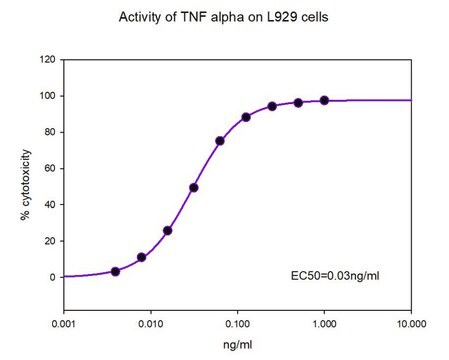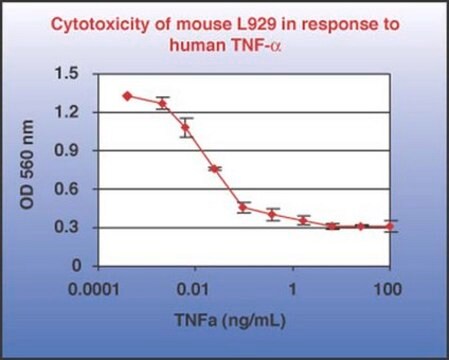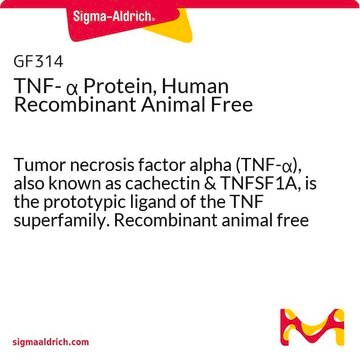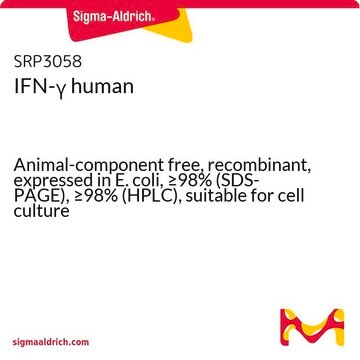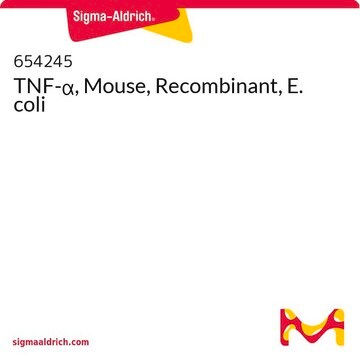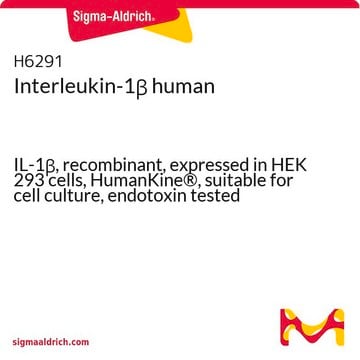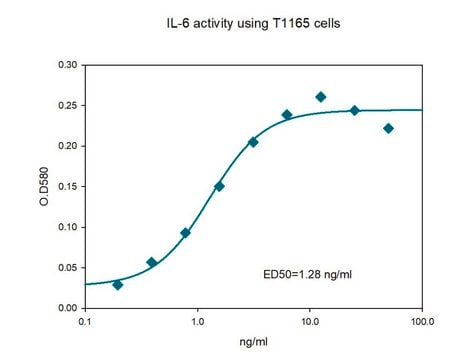T6674
Tumor Necrosis Factor-α human
≥97% (SDS-PAGE), recombinant, expressed in E. coli, powder, suitable for cell culture
Synonym(s):
hTNF-α, TNF-α
About This Item
Recommended Products
product name
Tumor Necrosis Factor-α human, TNF-α, recombinant, expressed in E. coli, powder, suitable for cell culture
biological source
human
Quality Level
recombinant
expressed in E. coli
Assay
≥97% (SDS-PAGE)
form
powder
potency
0.02-0.3 ng/mL ED50/EC50
quality
endotoxin tested
mol wt
~17.4 kDa
packaging
pkg of 5x10 μg
pkg of 10 μg
storage condition
avoid repeated freeze/thaw cycles
technique(s)
cell culture | mammalian: suitable
impurities
<1 EU/μg
UniProt accession no.
storage temp.
−20°C
Gene Information
human ... TNF(7124)
Looking for similar products? Visit Product Comparison Guide
Application
- to analyze the effects of cytokine TNFα-stressed human neuronal and glial (HNG) cells
- to investigate the molecular mechanisms of TNFα-mediated prolyl-4 hydroxylase α1 (P4Hα1) suppression
- to induce death-receptor-mediated apoptosis in HeLa cells.
Biochem/physiol Actions
Physical form
Analysis Note
Certificates of Analysis (COA)
Search for Certificates of Analysis (COA) by entering the products Lot/Batch Number. Lot and Batch Numbers can be found on a product’s label following the words ‘Lot’ or ‘Batch’.
Already Own This Product?
Find documentation for the products that you have recently purchased in the Document Library.
Customers Also Viewed
Protocols
WST-1 assay protocol for cell viability and cytotoxicity measurements with preparation instructions, applications, FAQs, and troubleshooting.
MTT assay protocol for measuring cell viability, proliferation and cytotoxicity. Instructions for MTT reagent preparation and examples of applications.
Perform colorimetric assays for nonradioactive quantification of cellular proliferation, viability, and cytotoxicity for adherent or suspension cells cultured in 96-well microplates.
Our team of scientists has experience in all areas of research including Life Science, Material Science, Chemical Synthesis, Chromatography, Analytical and many others.
Contact Technical Service
